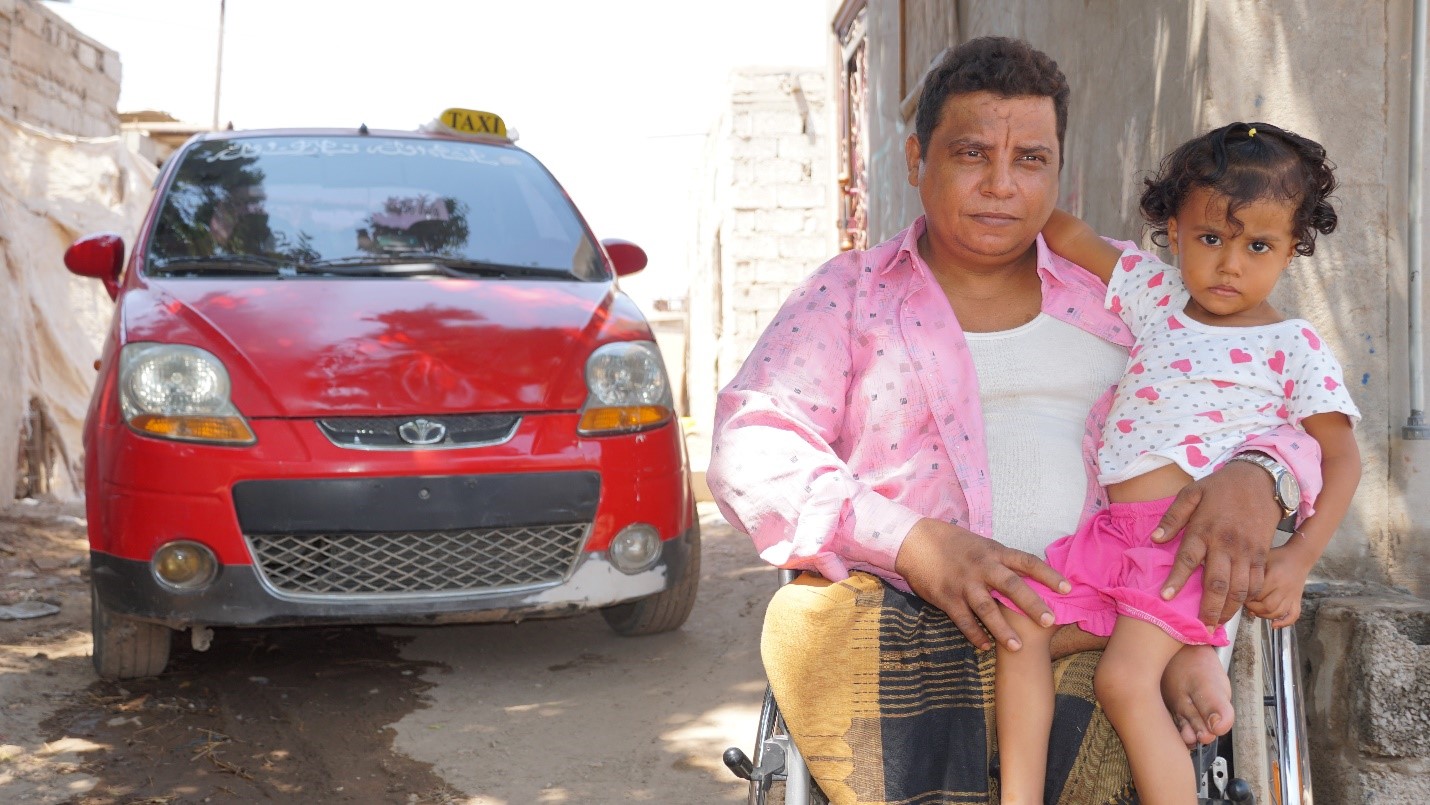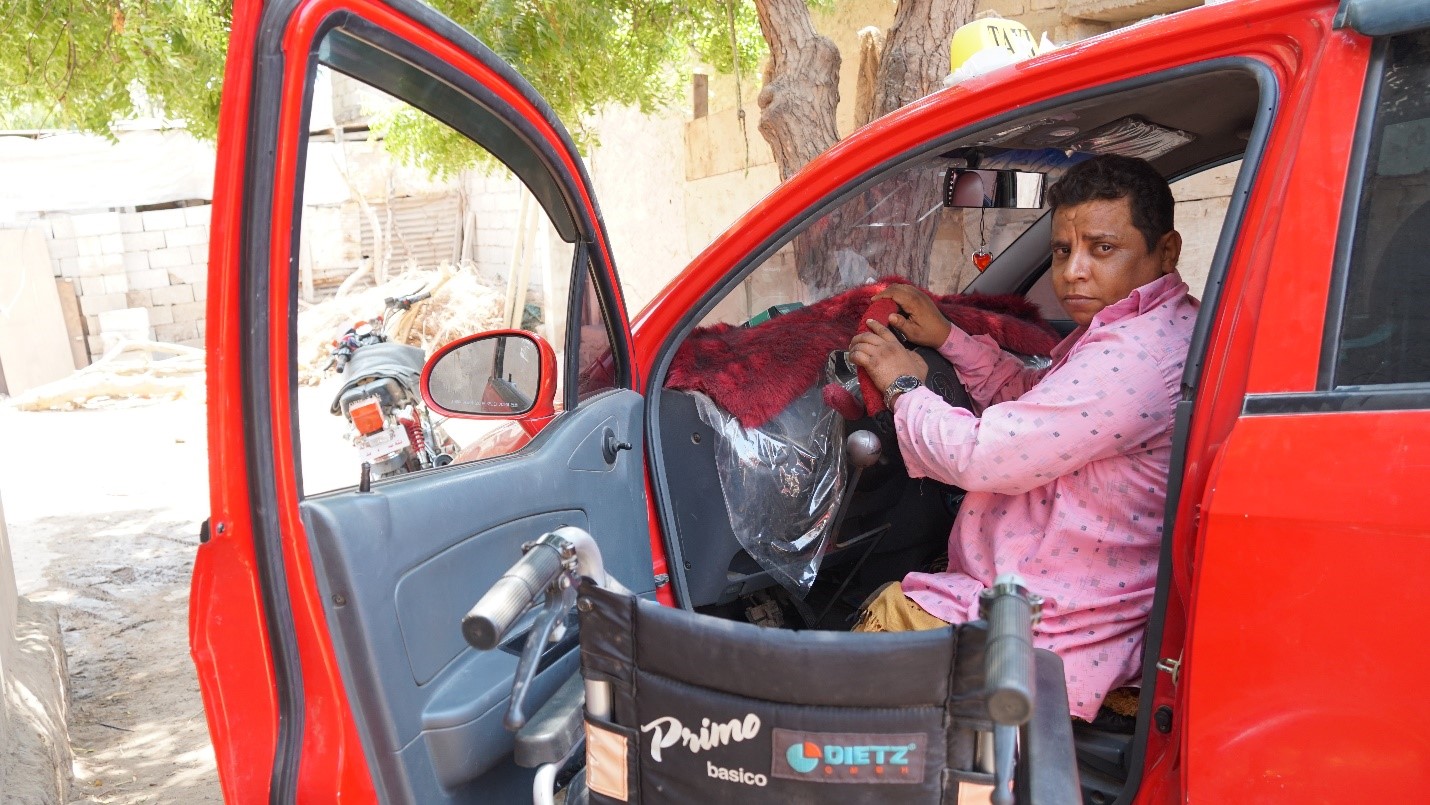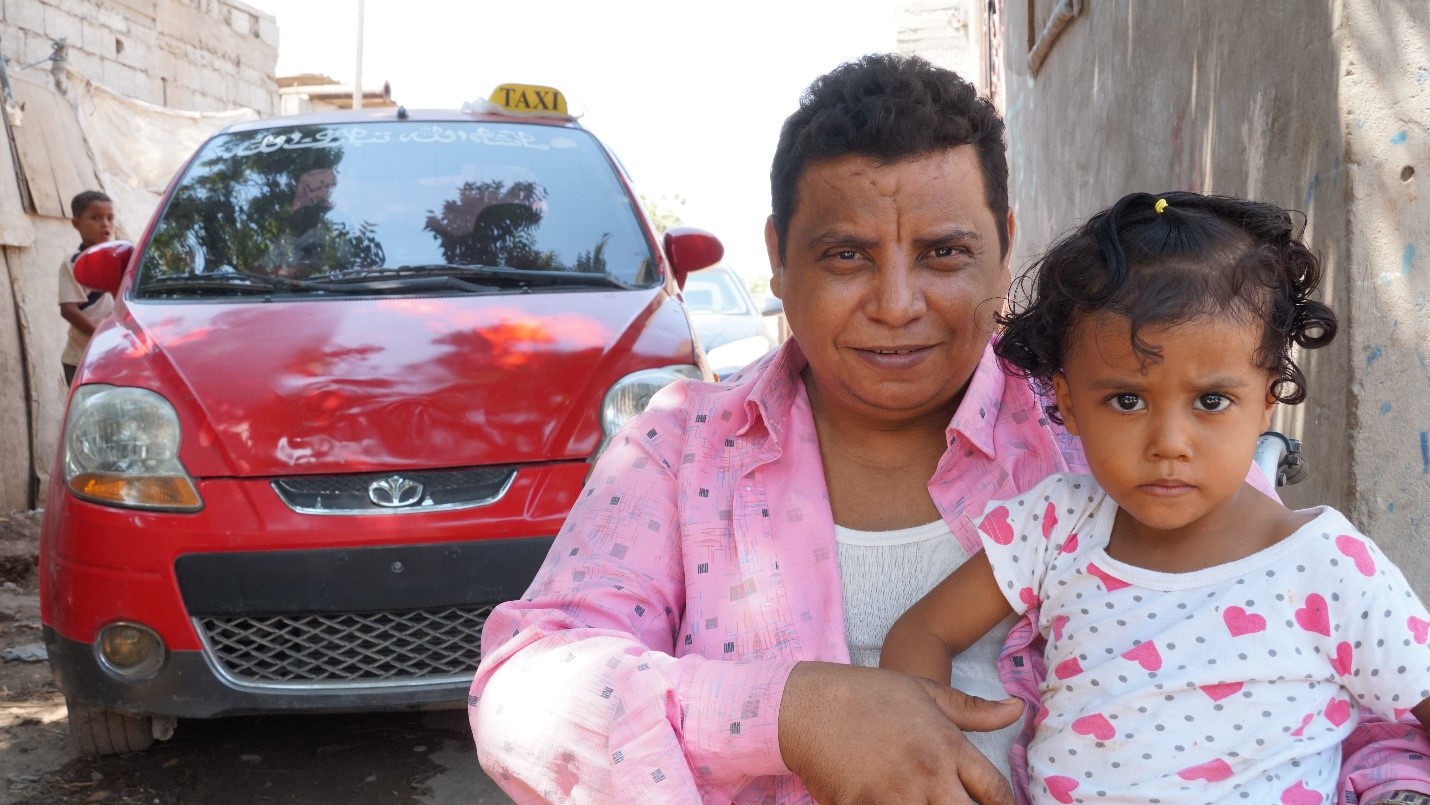In 2015, it was bad enough to be an internally displaced person fleeing your hometown. But being a person with a mobility disability running off with three family members, aged one month to sixty years, is unimaginable. This was the case of Ali Suef Ali Delb, a 43-year-old disabled man from Aden in the south of Yemen.
The ongoing armed conflict in Yemen has had deadly consequences for both civilians and infrastructure. After five years, 80 percent of the entire population is in need of some form of humanitarian aid and protection, while 3.6 million people have been internally displaced, and only half of the health facilities across the country are fully functional.
Ali had to flee his house in Dar Saad district due to an escalation of fighting. “Fleeing was so hard,” says Ali. “I felt worried about losing all our possessions, but I knew it was the best decision.” Ali’s family survived that fight and settled in Sheikh Othman district.
War makes life unbearable for everyone, but the impact of the conflict on people with disabilities is magnified further. They face compounded difficulties in fleeing violence as family members may help them escape or leave them behind. They also face many barriers related to accessing health services, humanitarian aid, education and livelihoods opportunities, and adequate living conditions.
During his displacement, Ali didn’t have enough money to support his family. Some aid organisations provided food baskets, but this wasn’t enough, so he started to borrow money from his friends.
When the fighting ended, Ali and his family returned and found their home destroyed. Ali looked for work, but couldn’t find any opportunities due to his disability. “My life was difficult and I had a lot of debts,” he says. “I had no work, but I kept praying to God. Then someone helped me to buy a three-wheel vehicle (locally named toktok), so I started working in goods transportation.”




